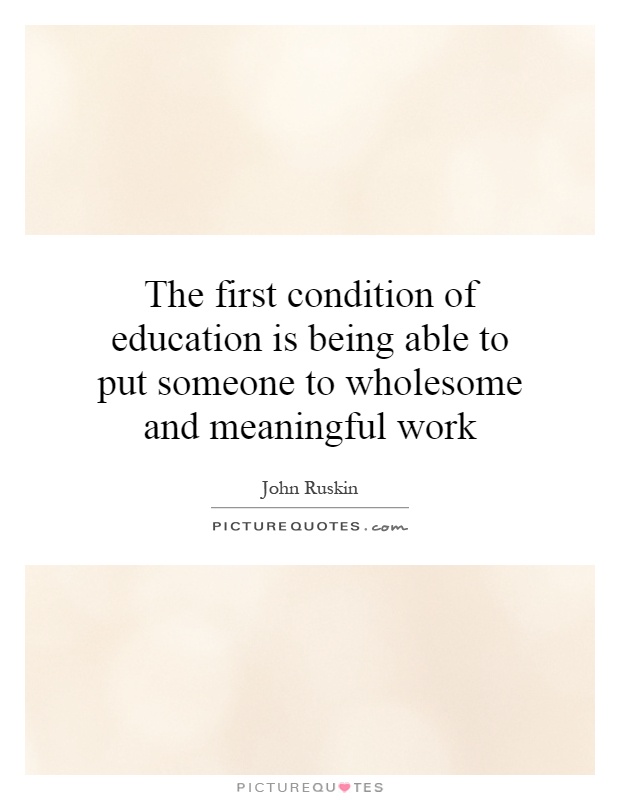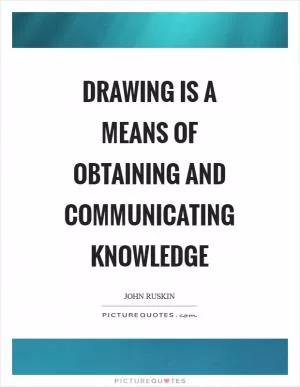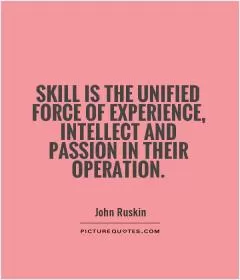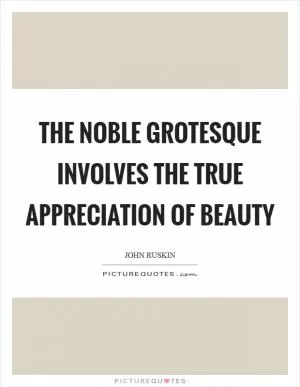The first condition of education is being able to put someone to wholesome and meaningful work

The first condition of education is being able to put someone to wholesome and meaningful work
John Ruskin, a prominent English art critic and social thinker of the 19th century, believed that the first condition of education is being able to put someone to wholesome and meaningful work. Ruskin's philosophy on education was deeply rooted in the idea that work should not only be a means of earning a living, but also a source of fulfillment and personal growth.Ruskin believed that education should not only focus on academic knowledge, but also on practical skills that can be applied in the real world. He argued that the purpose of education is to prepare individuals for a life of meaningful work that contributes to the betterment of society. In his view, work should be seen as a form of service to others, rather than just a way to make money.
Ruskin's emphasis on wholesome and meaningful work was influenced by his belief in the importance of craftsmanship and the value of manual labor. He believed that individuals should take pride in their work and strive for excellence in everything they do. Ruskin was a strong advocate for the preservation of traditional crafts and skills, which he believed were being lost in the face of industrialization and mass production.
Ruskin's ideas on education and work have continued to resonate with contemporary thinkers and educators. In today's fast-paced and technology-driven world, the importance of meaningful work and craftsmanship is often overlooked in favor of efficiency and productivity. However, Ruskin's philosophy reminds us that work should not only be a means to an end, but also a source of personal fulfillment and satisfaction.












 Friendship Quotes
Friendship Quotes Love Quotes
Love Quotes Life Quotes
Life Quotes Funny Quotes
Funny Quotes Motivational Quotes
Motivational Quotes Inspirational Quotes
Inspirational Quotes